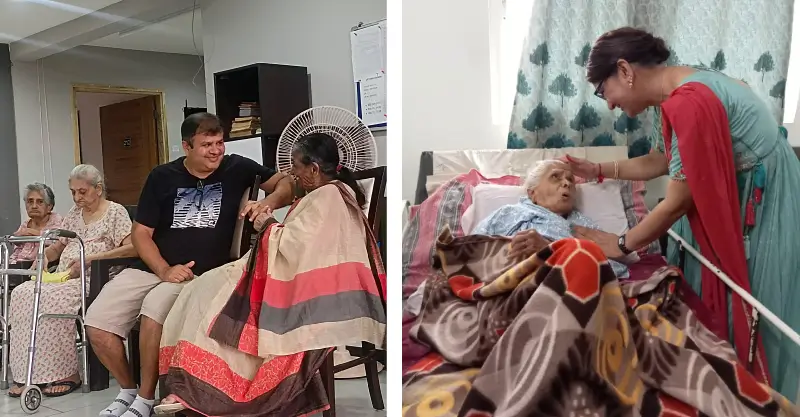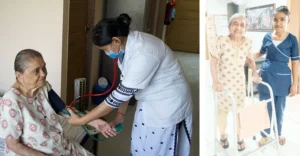As our loved ones age, their healthcare needs evolve, sometimes requiring more than just regular medical care. Palliative care provides comfort, relief from pain, and emotional support for seniors facing chronic or serious illnesses. But how do you know when it’s time to consider palliative care for your loved one? Recognizing the early signs can help ensure they receive the care they deserve while maintaining their dignity and quality of life.
Understanding Palliative Care: What It Means for Seniors
Palliative care is designed to enhance the well-being of seniors dealing with long-term or life-limiting illnesses, including conditions like cancer, heart failure, Parkinson’s disease, and advanced dementia. Instead of focusing solely on curing an illness, palliative care aims to ease discomfort, manage symptoms, and provide emotional and psychological support. It can be integrated with ongoing treatments or offered as a standalone care plan.
Recognizing the Right Time: When Palliative Care Becomes Essential
Many families hesitate to consider palliative care, fearing it signals the end of life. However, early palliative care can greatly improve a senior’s comfort and well-being. If your loved one is struggling with persistent health challenges, it may be time to explore palliative care options.
Physical Signs Indicating the Need for Palliative Care
Certain physical changes may indicate that a senior requires additional support:
- Persistent pain and discomfort – When pain interferes with daily activities and becomes difficult to manage.
- Frequent hospital visits – Repeated medical interventions for recurring or worsening health conditions.
- Decreased mobility – Struggling with walking, standing, or handling routine self-care.
- Uncontrolled symptoms – Issues such as breathlessness, fatigue, nausea, or severe weakness affecting day-to-day life.
Emotional and Psychological Indicators
A person’s overall health isn’t just about physical well-being. Emotional and mental health challenges can also indicate that additional care is needed:
- Feelings of anxiety or depression – Increased emotional distress, sadness, or mood swings.
- Social disengagement – Losing interest in activities, avoiding conversations, or withdrawing from loved ones.
- Emotional exhaustion – Expressions of frustration, agitation, or hopelessness.
Cognitive and Behavioral Changes
For seniors with neurological conditions like dementia or Parkinson’s disease, cognitive decline and behavioral shifts can signal the need for palliative care:
- Memory difficulties and confusion – Forgetting important details or struggling with familiar tasks.
- Challenges in communication – Difficulty expressing needs, leading to frustration or withdrawal.
- Changes in behavior – Unusual restlessness, irritability, or increased dependence on caregivers.
Nutritional and Appetite Concerns
A decline in appetite or difficulty eating can also indicate that a senior’s health is deteriorating. Watch for:
- Sudden weight loss – Rapid reduction in body weight without a medical explanation.
- Loss of interest in food and hydration – Refusing meals or struggling with chewing and swallowing.
- Frequent digestive issues – Nausea, vomiting, or difficulty digesting certain foods.
Increased Caregiver Stress and Burnout
Family caregivers often dedicate significant time and effort to providing care. However, when caregiving becomes overwhelming, professional support may be necessary. Signs of caregiver burnout include:
- Feeling physically and emotionally drained.
- Difficulty managing caregiving responsibilities alongside personal life.
- Increased stress, frustration, or feelings of helplessness.
How Palliative Care Enhances Quality of Life
Palliative care provides:
- Pain and symptom relief – Ensuring seniors remain comfortable and at ease.
- Emotional and psychological support – Addressing anxiety, depression, and distress.
- Social and spiritual well-being – Encouraging connections and personal fulfillment.
By focusing on holistic care, seniors experience a better quality of life, improved mental health, and reduced suffering.
Choosing the Right Palliative Care Provider
When selecting a palliative care provider, consider:
- Skilled professionals who offer medical and emotional support.
- A personalized care approach that caters to specific needs.
- A nurturing and homely environment for seniors.
When to Have the Conversation: Discussing Palliative Care with Your Loved One
Talking about palliative care can be challenging, but it’s essential to involve your loved one in the decision-making process. Approach the conversation with:
- Compassion and understanding.
- A focus on their comfort and well-being.
- Support from healthcare professionals for guidance.
You may like to read this: How Palliative Care and Hospice Care Differ for Senior Patients
PapayaCare’s Commitment to Compassionate Palliative Care
At PapayaCare, we provide personalized care plans designed to bring comfort, dignity, and peace of mind to seniors and their families. Our approach ensures that seniors receive the medical attention, emotional support, and nurturing care they need to live comfortably.
If you’re wondering whether palliative care is the right choice for your loved one, reach out to PapayaCare today to explore how we can help.

















